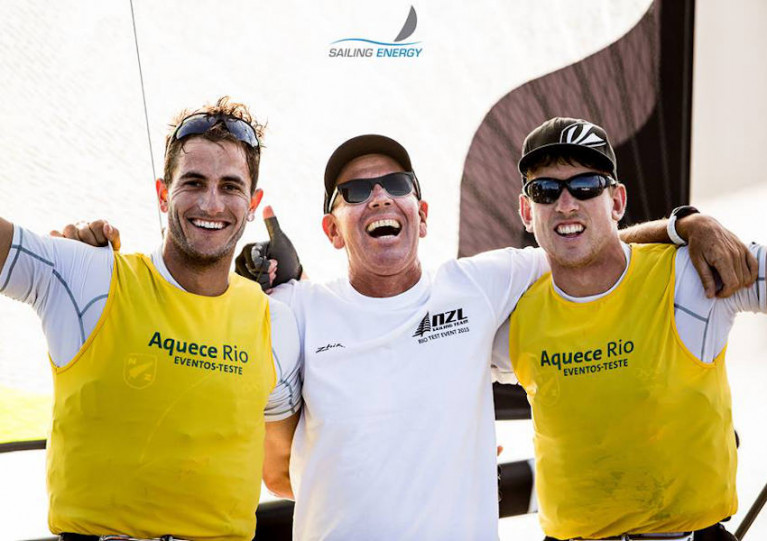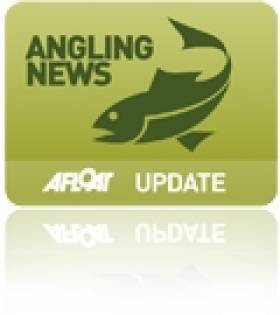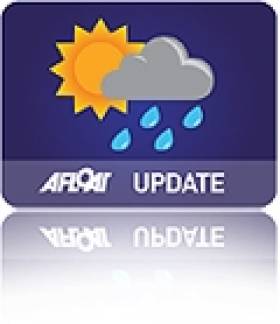Displaying items by tag: Online
Olympic Sailing Coach Launches Online ‘Road to Gold’ Course to Share Secrets of Success at the Highest Level
The Olympic coach behind the success of leading sailors Peter Burling and Blair Tuke has launched a new 12-week programme to set students “on the path to world-class performance”.
Hamish Willcox will deliver the Road to Gold online course which promises to demystify the secrets of campaigning at sailing’s highest level — from boat handling and tactics to fitness and mental strength.
The course will use a combination of online video and live webinars, culminating in a test that will help students determine how to bridge any gaps in sailing and campaigning skills.
And given the achievements of America’s Cup winner Peter Burling and experienced ocean and 49er racer Tuke, Ireland’s Olympic sailing hopefuls may take some interest in Willcox’s wisdom — especially with two campaigns still seeking a precious berth at Tokyo 2020.
The full course fee is €246 but early bird bookings (until Wednesday 9 December) will save more than €80 on that price, tax included — and with a 30-day money-back guarantee. Click HERE for more details.
Atlantic Salmon Trust Launches 2012 Auction Online
#ANGLING - The Atlantic Salmon Trust's 2012 Fishing Country Sports Auction went live this week, with some 300 lots offered - including three prime Irish fishing spots on the Blackwater, Mourne and Drowes.
“The annual auction remains our single most significant fundraising event and its success is essential to helping us continue our work,” said AST chief executive Tony Andrews in The Irish Times.
Aside from top fishing opportunities in England, Scotland and Wales, spots in Russia are also featured, as well as deer stalking excursions and shooting days.
For art lovers, sporting prints and watercolours are included in the lots, as is a limited edition of the acclaimed Atlantic Salmon Magic, and Salmon Rivers, one of the best recent publications on the Atlantic salmon. They could be the perfect gift for someone's Valentine's Day.
Bids will close on 14 February for the online auction at www.atlanticsalmontrust.org/auction/.
Marine Institute Library Catalogue goes Online
The Marine Institute's specialist research library, Oceanus with has over 5,000 books relating to marine, natural and life sciences is now open online. The institute's extensive collection of scientific literature relating to marine and freshwater resources is available to browse in advance of visiting the library in person to access the material.
"The foundations of the Marine Institute Library collection began with materials acquired by the Fisheries Branch of the Department of Agriculture and Technical Instruction for Ireland, which was established in 1899," said Dr. Peter Heffernan, Chief Executive of the Marine Institute.
According to Anne Wilkinson, the Institute's Library and Information Manager, "Our unique archive material, dating from c. 1890, is an important element of this collection. The archive includes scientific reports, books and publications prepared by Irish and international marine researchers, including copies of Fishery Ireland Acts dating from the late 1800s and Reports of the Inspectors of Irish Fisheries and Sea and Inland Fisheries Ireland from the same period."
The Library archive has a microfiche reader to facilitate access to some of this material. In addition there are many research reports prepared by Marine Institute scientists and marine related publications issued by the EU, the International Council for the Exploration of the Sea (ICES), and the Food and Agriculture Organisation of the United Nations (FAO).
To go online to the libray click this link hereFor an appointment at the Oceanus Library which is open to the public you can contact the library Tel: (091) 38700 or email: [email protected]. The Marine Institute headquarters is located at Rinville, Oranmore, Co. Galway.
New Website For Irish Weather Enthusiasts
Ireland's first dedicated weather news and long range forecast website, Irish Weather Online has been launched. The independently run website has already been profiled on The Weather Channel in the US since it went live last week.
Described as a website by weather enthusiasts for weather enthusiasts, the site features a daily long range weather forecast from climatologist Peter O'Donnell, the latest news relating to the weather and climate in Ireland, and weather related video and imagery.
Live weather conditions in over 50 locations throughout the country are hosted on the site, courtesy of Ireland's Weather Network.
There also dedicated sections to ski conditions at resorts around the world, the latest recorded earth tremors in Ireland and the UK (provided by the British Geological Survey), lightning reports from Ireland, real-time weather conditions in cities all over the world, and a timeline of extreme weather events down through Irish history.
iWeather Online also hosts a 'Live chat' forum which enables visitors to engage with other weather enthusiasts on the issues of the day.
According to iWeather Online founder Mark Dunphy: ""Every conversation in Ireland begins with a comment on the day's weather. Consequently, we saw there was considerable scope for developing an all inclusive portal for weather related information and by doing so tap into the huge interest among Irish people in the weather. The website's success depends on the contributions of weather enthusiasts from every county in Ireland and by providing relevant, up to date weather information we aim to become Ireland's number source for Irish weather news and information."
"The timing of the website launch last week was somewhat fortuitous as we went live less than 24 hours before Storm Carmen brought some of the strongest winds recorded in the country in recent years. A real-time report on the storm and its impact around the country attracted thousands of visitors from throughout Ireland and abroad which assisted us to providing a pictorial timeline of the storm. Some of these images were subsequently broadcast to millions of viewers of The Weather Channel in the USA.
"Many of the initial contributions to the site have come from users of the hugely popular weather forum on www.boards.ie", he added.
Visitors to the site are invited to submit pictures and videos to [email protected].
For more visit HERE


























































